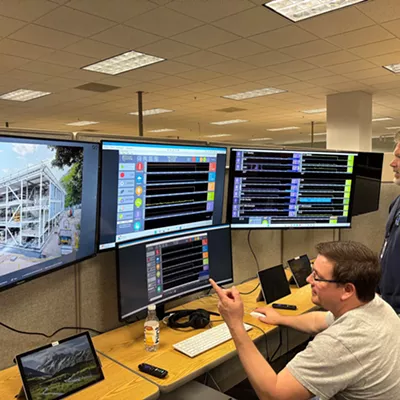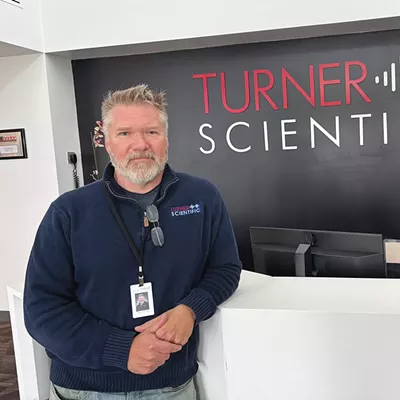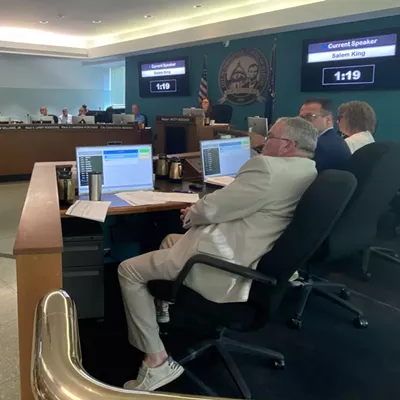Area employers are more selective when hiring and unemployment is up, according to Dixie Ladd, owner of StaffQuick in Chatham, a staffing agency providing temporary and permanent placements in a variety of industries.
Ladd encourages job seekers to establish a solid employment history and discourages switching jobs too quickly. "It is not in their best interest to job-hop. Several years ago, our (employer) clients would be really flexible as far as experience, but it was a different time. Today, they're requiring more on resumes and expecting at least a six-month work history."
Another trend is more employers communicating and partnering with high schools to get students interested in their industries and train them for either summer work or full-time entry into the workforce after graduation.
"A lot of high schools are really starting to work with employers to get their kids into a vocational position where they can have a full-time job right away," Ladd said.
For such students, in partnership with several high schools, StaffQuick sponsors a Ready-to-Work scholarship of $250 to help with transportation and other expenses before they receive their first paycheck. Ladd described the excitement students feel when receiving the scholarship.
"Most high schools have an awards night, and these are kids that might not get an academic scholarship but are invited to the event, maybe for the first time, to receive our Ready-to-Work scholarship," she said.
"One of the high school principals shared a letter he received from a scholarship recipient of a few years ago. He's still at the company we placed him at, and he thanked the principal for helping him get a temp assignment in a 'real job' that turned into a full-time career. He's a trainer now and saving to buy a home. He knows without the help, he might have headed down a different path."
When asked about job fields that are popular right now, Ladd mentioned the skilled trades.
"Everybody seems to need machine operators and welders. This goes back to the high schools offering vocational training and partnering with two-year colleges to get employers what they need. The baby boomers are retiring, and employers need skilled workers to replace them."
She said the employers she works with generally want their staff on site, but are willing to adjust shifts for the younger people coming in.
"They might change their normal 12-hour shift to a 10- or 8-hour shift or maybe a Friday, Saturday, Sunday work schedule. They're open to different ways to attract the best employees," Ladd said.
Information technology staffing
Meanwhile, staffing in information technology has slowed a bit due to economic uncertainty, according to Chris Walters, senior vice president of the Levi, Ray & Shoup Consulting Services group. He said clients throughout the world are being cautious about hiring until it's clear how recently enacted tariffs will affect their businesses.
"We're holding our own in recruiting IT workers for our clients, and we've grown this fiscal year," said Walters. "It's good to be back on that track, but I think the tariffs have put a bit of a chilling effect on the creation of new opportunities until people can figure out what the impact will be. Our customers are some of the biggest in the world, so they really are tied into what is going on in the market."
He noted, "A couple of years ago when Silicon Valley had tons of layoffs at Facebook, Amazon, Microsoft, etc., a lot of them were fully remote workers. That started what transpired over the next 24 months as a general slowing down from where we had been. To be fair, we (the industry as a whole) had had record growth for a long time."
Walters now sees more employers requiring IT workers to be on-site.
"We have customers that have gone back to three days a week on-site, some four and some all five days in the office. We have very few companies that are still fully remote for IT, which is different than a year ago and vastly different than three years ago."
As far as U.S. companies hiring IT workers from other countries, Walters said the current administration is getting more input from the private sector, and "nothing I have heard at this point makes me nervous about immigration from our perspective, which is legal, H-1B immigration. We rely on those workers and definitely need access to them."
Shannon Heisler, director of marketing and corporate communications at LRS, noted that just like last year, there are more IT jobs available in the U.S. than there are U.S. workers to fill them, particularly in specific types of technologies. Walters added that India graduates many more students in computer science than the U.S.
"We have to leverage that talent when we need to," she said. "We follow the immigration law to a T, and it works well for us."
Walters believes encouraging early interest in computer science is crucial. "We need to be in classrooms in grade schools. It's an exciting field. There's no same day in IT; you're always dealing with new challenges and new technologies."
As far as the "hot" field in IT, Walters and Heisler agree. "Anything data-related. You need to integrate data into your AI (artificial intelligence) system. Data drives everything now," said Walters.
He anticipates AI and other new technologies will lead to new types of IT jobs but not outright replace IT positions.
"In recruiting IT employees, AI is one of our tools, automating some of the administrative tasks, but most industry experts agree, AI is not going to replace a recruiter," Walters said. "AI helps us find the best talent that might have been harder to find."














